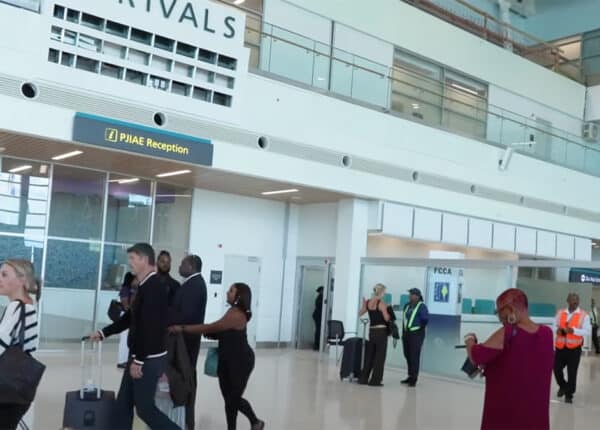By Gerard Best
CJ Contributor
KINGSTOWN —Internet adoption in the Caribbean is increasing rapidly, but so, too are new threats and risks for persons, business and governments that are going online. Cyber attacks and cyber crime are being reported with greater frequency. Now the Eastern Caribbean country of St Vincent and the Grenadines has become the latest to take steps to address the issue of national cyber security.
St Vincent and the Grenadines became the latest country to host a national cyber security symposium. The Caribbean Network Operators Group (CaribNOG) and the newly formed local Internet Society Chapter facilitated the event.
The meeting, which took place at Frenches House, Sally Spring, Kingstown on December 7 and 8, drew participants from across the Eastern Caribbean, including Antigua and Barbuda, Barbados, Dominica, Grenada, and St Kitts and Nevis. The American Registry for Internet Numbers (ARIN), Packet Clearing House (PCH) and the Internet Corporation for Assigned Names and Numbers (ICANN) were among the main supporters.
“This Symposium is just the start of a broader dialogue about cyber security issues, and is an important step towards framing a more coordinated national approach to cyber security,” said Bevil Wooding, an executive director of CaribNOG and Caribbean Outreach Liaison for ARIN.
Wooding, the keynote speaker, explained the types of threats being faced in the Caribbean, as well as the work being done by various groups to protect the Caribbean Internet.
“CaribNOG and ARIN are working closely with stakeholders across the Caribbean to support the security and strengthening of computer networks in the region. Education and technical capacity initiatives like the cyber security symposium help raise nationwide awareness of threats as well as the opportunities. This is key to protecting our digital borders against emerging cyber threats,” he said.
“It’s important that persons from every sector of society understand the importance of cyber security issues, so that all can participate meaningfully in the public policy development process,” said Dr Jerrol Thompson, Director of Special Projects in the Office of the Prime Minister.
Thompson was delivering remarks on behalf of Camillo Gonsalves, Minister with responsibility for ICT. He credited Roxanne John, president of the local Internet Society chapter, for her efforts. He also thanked CaribNOG, a volunteer-based community of computer network operators and cyber security experts, for its role. CaribNOG also organised Belize’s first-ever national cybersecurity symposium, in April.
“Cyber security has been very high on CaribNOG’s agenda, in particular over the last few years, as the frequency and magnitude of cyber incidents globally has continued to rise,” said Stephen Lee, Program Director of CaribNOG. “In St Vincent, the emphasis was on practical steps to set up Computer Security Incident Response Teams to help countries and groups to better detect and respond to cyber attacks and cyber incidents. In 2018, we plan to stage similar events across the Caribbean.”
The two-day symposium included a broad range of stakeholders, including law makers, law enforcers, Courts, educators, academics, parents and young people. Shernon Osepa, Manager of Regional Affairs for Latin America and the Caribbean at the Internet Society, highlighted the importance of collaboration to address the issue of cyber security.
“Cyber criminals do not respect national borders. Cyber crime can span countries and continents. That is why a multi-stakeholder, collaborative approach to cyber security is so important. We need to work together to protect our assets and our data in the digital age,” Osepa said.
Gerard Best can be reached at gerard@gerardbest.com.







